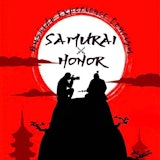
Check out these articles
-
 Video article 3:49
Video article 3:49Osaka Is Just as Awesome as You Imagined It Would Be! 110% Fun in One of Japan's Major Cities!
Local PRFestivals & EventsTravel- 141 plays
- YouTube
-
 Video article 20:38
Video article 20:38Osaka’s American Village, "Amemura," Is the Epicenter of Youth Culture and Trends! Stroll Through the Fascinating City and Enjoy Fashion, Music, Art, Delicious Food, and More!
Shopping- 353 plays
- YouTube
-
 Video article 3:13
Video article 3:13110% Fun at Hirakata Park! Winter Illuminations, Summer Swimming Pools, and More! Discover All of the Seasonal Events and Attractions at This Amusement Park in Osaka!
Things to DoTravelNature- 186 plays
- YouTube

![[Image1]In Hinomotoichi's Calligraphy Trial Plan, students do not pick up a brush and start writing immediat](https://img-cooljapan.imgix.net/member_posts/image/52ca5a19edf99a597f2ac80b29e9dfe1cebf794d.jpg?w=330&h=330&fit=min&auto=format&q=70)
![[Image2]In Hinomotoichi's Calligraphy Trial Plan, students do not pick up a brush and start writing immediat](https://img-cooljapan.imgix.net/member_posts/image/c45c58434171a4e664aff298321bbaa5c5cf1f74.jpg?w=330&h=330&fit=min&auto=format&q=70)

